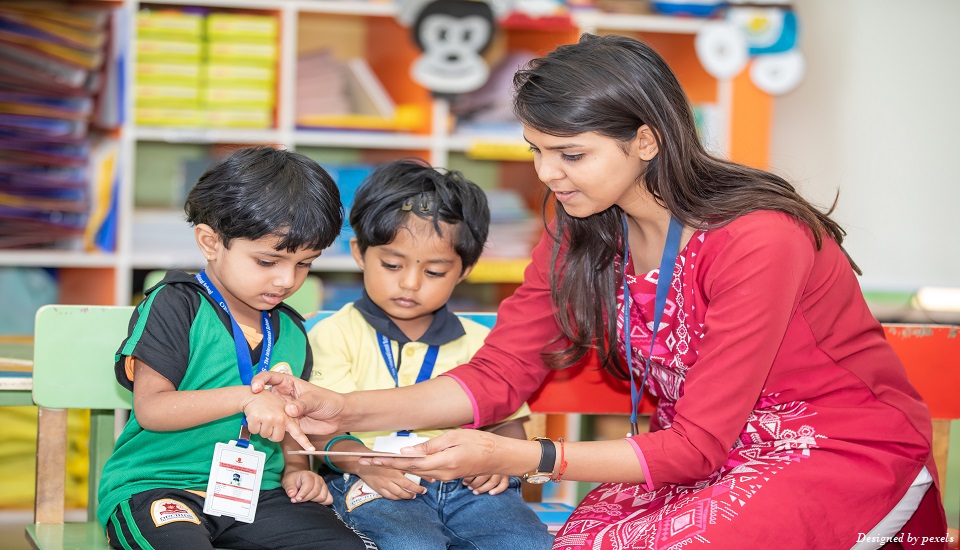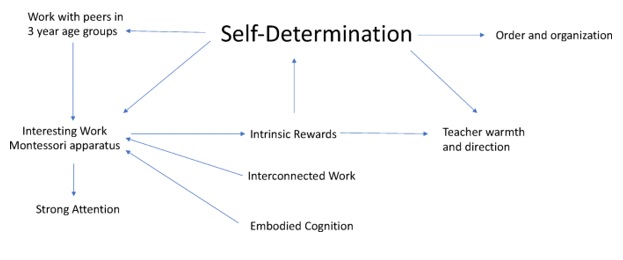Understanding the 4 Main Goals Of Anti-Bias Montessori Education
21st November 2022

We shall walk together on this path for life, for all things are part of the universe, and are connected with each other to form one whole unity. - Maria Montessori
In the Montessori education, ABAR training (Anti-bias Antiracism) for teachers plays a crucial role. Needless to say, it is important for a child to learn these values of life from the scratch. Therefore, the demand for ABAR Montessori educators is massive. Anti-bias Montessori education basically aims to make an environment where every surface of human change can get the proper education.
Anti-Bias Anti-Racist generally means conflicting or prohibiting discriminating judgement against individuals based on race, religious conviction, gender identity, sexual orientation, language, culture, learning styles, socioeconomic class, body type, aptitudes, etc. ABAR Montessori education model encourages all affiliates of society to challenge partiality, typecasts and all forms of discrimination in schools and communities actively.
What are the four core objectives of anti-bias Montessori education?
Following are the four core goals of anti-bias Montessori education ---
- Identity
Kids will establish self-awareness, confidence, and positive social individualities. Montessori teachers will cultivate each child’s creation of knowledge, self-confidence, individual and social characteristics. In simple words, this goal means helping children to feel strong and satisfied with who they are without demanding to feel superior to anyone else.
This goal is the preliminary place for all children, in all situations. The ABAR education highlights the significant idea of fostering children’s social (or group) characteristics. Usually, various social identities consist of gender, racial, ethnic, cultural, religious, and economic class groups.
- Diversity
This goal denotes the fact the children will encourage each kid’s happy and empathetic communication with people from diverse backgrounds. Because great teamwork is needed to tear down the pillar of racism. Kids will express their joy with diversity, use precise language for human changes, and form their connections to human diversity.
In simple words, this goal means controlling kids to be able to think about and have words for how individuals are the same and how they are diverse. Additionally, it consists of reassuring children to learn about how they are different from other kids. This goal is the heart of learning how to treat all individuals equally.

(Source - springer.com)
- Justice
Here, Montessori teachers will foster each kid’s capacity to recognize bias critically and will cultivate each child’s responsiveness to the hurt bias grounds. Kids will recognize injustice gradually, have a language to pronounce injustice, and understand that injustice hurts.
In simple words, this goal is all about fostering kids’ distinctive, budding capacities for empathy and equality. It is about building a sense of security, the sense that everyone can and will be preserved honestly. Nurturing the aptitude to think critically reinforces children’s sense of self, as well as their capacity to form caring associations with others.
- Activism
This goal is all about giving children different tools for understanding how to stand up to upsetting and unfair biased behavior based on any aspect of social individuality. Kids will reveal a sense of empowerment and the aid to act, with others or unaccompanied, against prejudice and/or any kind of discriminatory actions.
Montessori educators will nurture each child’s aptitude and confidence to stand up for oneself and for others in the face of predisposition.
The Bottom Line
The basic ideas for Anti-Bias Montessori Education content and activities come from the above-mentioned major sources. The Diploma in Montessori Teacher Training Course prepares futuristic educators to instill these precious life-values in the children.
If you want to know more about such programs, call our toll-free number: 1800-212-6400.
Written By: Sheetal Sharma